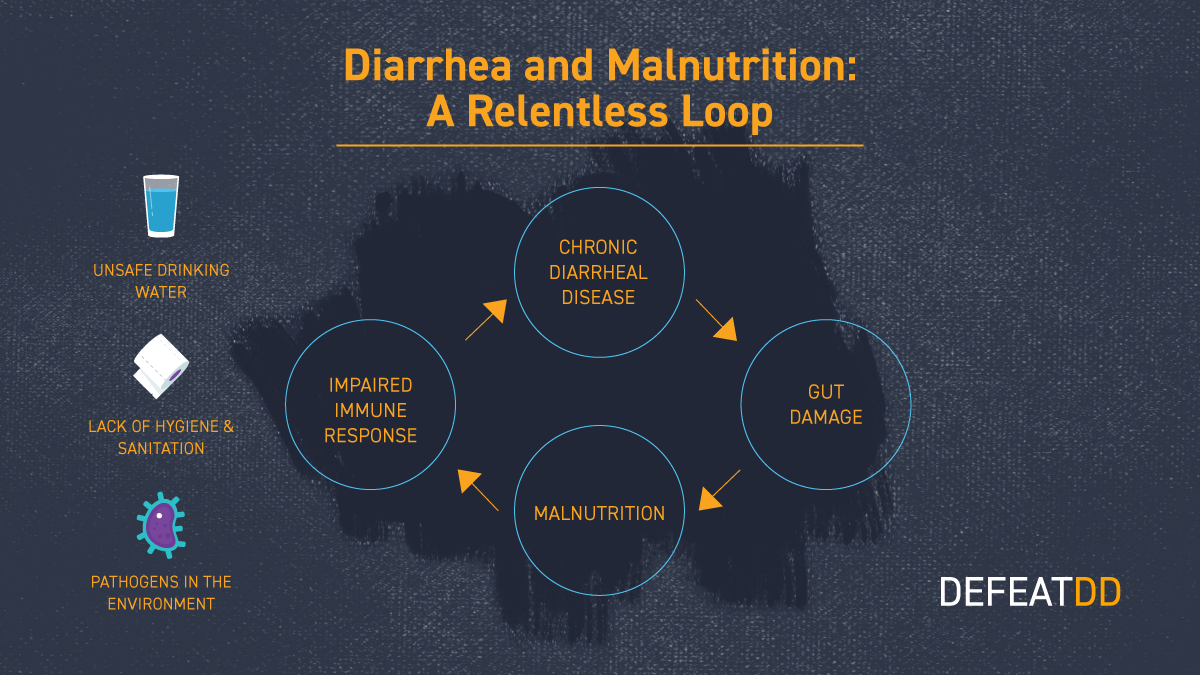
What does nutrition have to do with diarrhea?

We all know that the food we eat impacts our health: good, nutritious foods mean a strong and healthy body. But there is more to it – nutrition plays a vital role in child health and impacts the risk of diarrheal disease.
Diarrhea is one of the leading causes of malnutrition in children less than five years old. Diarrhea and malnutrition can be conceptualized as a loop, as one impacts the other continuously to keep children sick and vulnerable to disease. Repeated infections damage the gut, prevent nutrient absorption, and blunt the immune system. As a result, malnourished children can suffer stunted cognitive and physical growth. By contrast, proper nutrition safeguards the immune system against diarrhea and other diseases.
It’s more than just food that impacts this cycle: children in low-resource settings can ingest dangerous pathogens that cause diarrhea and other diseases due to unsafe Water, lack of access to Sanitation, and barriers to regular Hygiene (WASH). Further, it is becoming more urgent that we address this recurring pattern as recent research found that by 2025 the effects of climate change will increase the risk of hunger and malnutrition by 20%, with babies and children being the most impacted. This prediction is due largely to increased climate shocks in low-income countries that reduce or destroy crops, leading to shortfalls in food availability.
To comprehensively address the vicious cycle of diarrhea and malnutrition and the long-term damage it can cause, an integrated approach that includes treatment (oral rehydration solution (ORS) and zinc) and prevention (safe WASH, breastfeeding, and immunization) is most effective. Given that good health begins with good nutrition, solutions that work together to fortify child nutrition have long-lasting impacts. Although research has shown great progress in the reduction of deaths from diarrheal disease, we must continue investments towards improved nutrition commitments and goals that not only allow children to survive, but to live healthy lives to their fullest potential.


